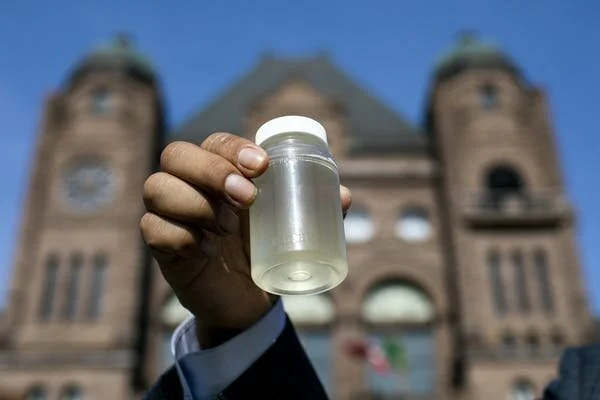Blue-green algae blooms in parts of Lake of the Woods can change the appearance of the water and these blooms have the potential to cause some harm to pets or people who choose to take a drink or a swim. Blue-green algae blooms are common in parts of the lake, which straddles Ontario, Manitoba and Minnesota. However, they are generally not seen late in the year or in some of the locations they are now being found. As well, the blooms can be toxic.
Cyclist riding across Canada to raise awareness of youth mental health crisis in Manitoba community
Existence of blue-green algae confirmed in Grand Lake water toxicity test
Blue-green algae has returned as the main suspect in the Grand Lake water contamination saga. “The National Research Council lab did confirm that there are what are known as … the toxins associated with blue-green algae that were collected on Friday,” Julie Towers, deputy minister of the provincial Environment Department, said at a news conference in Elmsdale on Tuesday afternoon.
Water Advisory Continues for Shubenacadie Grand Lake
The provincial Department of Environment and Climate Change is advising people in the Shubenacadie Grand Lake area to avoid using lake water over the weekend. The department is investigating water quality after a complaint earlier this week about two dogs dying after being in contact with a substance on the lakeshore. Rapid tests done on water samples from the lake on Thursday, June 10, were inconclusive. However, based on visual evidence from the time the complaint about water quality was made, the incident is being treated as a blue-green algae bloom. Additional test results will be available Monday.
Water crisis in First Nations communities runs deeper than long-term drinking water advisories
In October, more than 250 members of the Neskantaga First Nation were evacuated to Thunder Bay after an oily sheen was found on their reservoir. The discovery left the community, located in northern Ontario, without access to running water. The evacuation drew attention to the federal government’s 2015 commitment to end all on reserve long-term drinking water advisories (in place for more than one year) by March 31, 2021. Neskantaga has been living under a boil-water advisory for 26 years.






